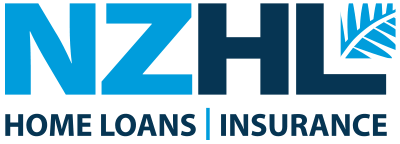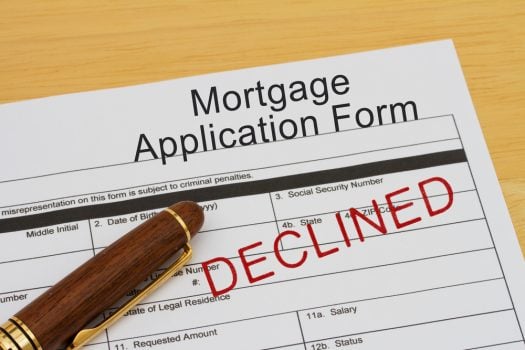There is nothing worse than dreaming of your own home, putting time and effort into finding your dream home only to have the lender come back and decline your mortgage application. It can be heart-breaking. Here are the most common reasons lenders decline home loan applications.
1. Insufficient deposit
Gone are the days of 100% home loans, and while this may seem hard when you're trying to save for a deposit, it's a good thing. It minimises the risk to both the purchaser and the lender and will hopefully help avoid a repeat of things like the GFC. The universally preferred deposit amount in NZ is 20%. This is because the Reserve Bank has created what have become known as 'speed limits' which restrict the number of low deposit home loans (or high loan-to-value ratio loans) that a lender can provide. So while once upon a time you may have been eligible for a home loan with a 5% deposit there just aren't that many to go around any more.
If you are struggling with the 20% and it is your first home, your best bet is a Welcome Home Loan as this only requires a 10% deposit and there are no restrictions to lenders as to how many of these that they give out as this is not part of the 'speed limits'.
In addition to the quantity of the deposit the 'quality' of it is also important to lenders. They need to be able to see some form of genuine saving going into the deposit (KiwiSaver counts as 'genuine saving'). The lenders want to see that the person buying the house has actually saved some of the money themselves, not had it all gifted to them. It gives them confidence that you'll be able to commit to paying back the home loan repayment amounts.
2. Income not sufficient to service the home loan
In the wake of the GFC banks and lenders have had to become more responsible with how and to whom they lend. Here in NZ the Responsible Lending Code came into force on the 6th of June 2015. It means that lenders have a duty of care not to over-burden people with debts that they simply cannot meet. So when calculating how much you might be able to borrow based on your income the lenders must also ensure that you have sufficient income to meet other normal day to day costs and that if interest rates rise, you can still afford to meet the repayments. Naturally this protects them but it also protects the consumer and ensures they do not suffer undue stress or financial hardship due to their home loan.
3. Property not acceptable to lender
Often a home loan application will be perfect, the applicant an ideal candidate for a home loan but the lender will reject it based on the property that they wish to purchase. Banks are cautious and are always trying to minimise their risk and ensure that neither they, nor the applicant will be left in a compromised financial position. So there are a lot of types of homes that they consider 'too risky' to lend on, these include things like; leaky homes (or homes with leaky type construction), homes contaminated by P labs, homes that are in unusual locations or homes that would only appeal to a very very small segment of the market. When seeking pre-approval before house hunting, chat to your lender about homes that they would and would not consider acceptable.
4. Bad credit history
If you have a history of not paying back debts, naturally it makes lenders wary about lending their money to you, so if you have a bad credit history there is a good chance your application will be declined. If you're unsure about your credit history you can check it with one of several credit reporting companies. If you think that anything is incorrect then you'll be able to work with the credit reporting companies to have it corrected.
5. Not being able to prove or unsteady income
If you can't prove a reliable income (eg if you're newly self employed or have an unsteady or irregular income), lenders will be reluctant to offer finance. If you can't prove your income, how can they be sure you'll have sufficient income to pay back the home loan each month? The Responsible Lending Code means they must be sure of your ability to pay back the loan.
The information contained in this article is of a general nature and should not be taken as advice. It reflects the opinions of the writer only and does not necessarily reflect the opinions of New Zealand Home Loans.






